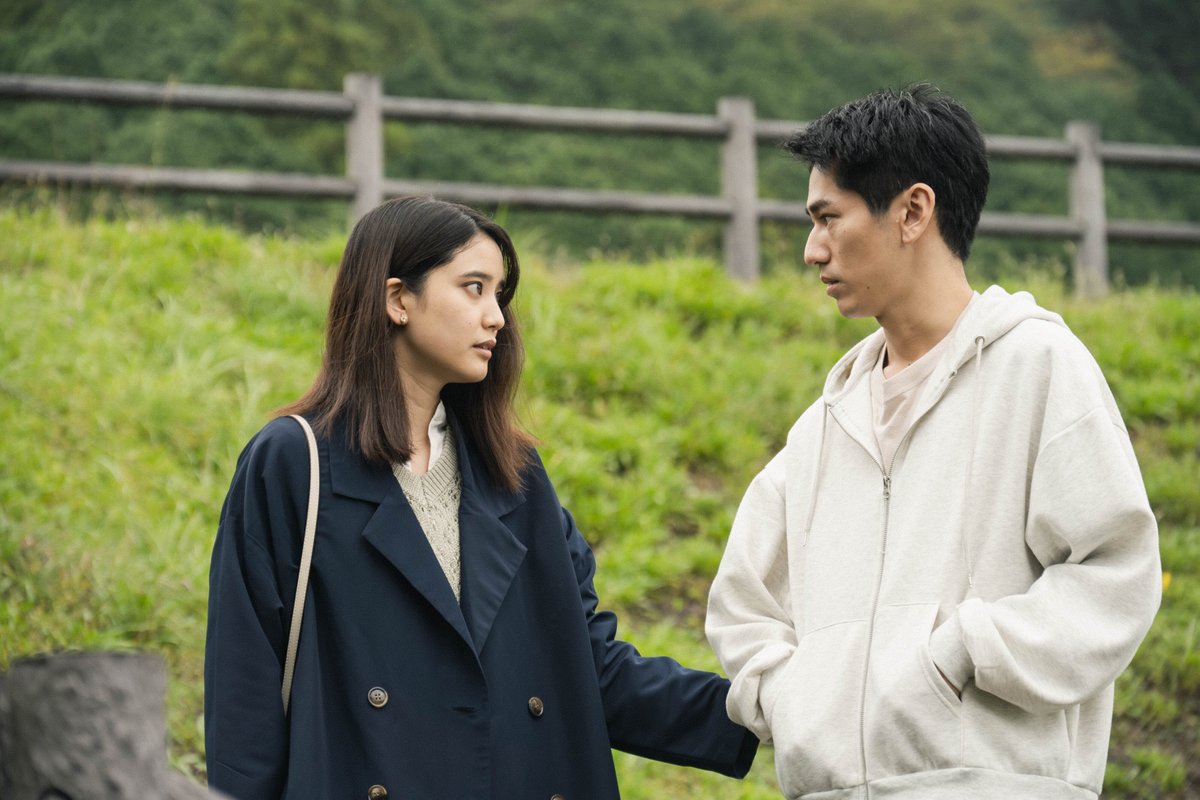世界中の映画評論家からのコメント紹介③

ヴェネツィア国際映画祭、トロント国際映画祭、釜山国際映画祭、
第66回 BIFロンドン映画祭、台北金馬映画祭への正式出品、
第14回TAMA映画賞最優秀作品賞の受賞など、
数々の映画祭で評価をいただいている映画『LOVE LIFE』。
世界中の映画評論家の方々からいただいたコメントを、
一部特別にご紹介させていただきます!
前回の海外評記事は ★こちら
11 THE GUARDIAN, Peter Bradshaw
“Japanese director Kôji Fukada has crafted a richly painful and quietly comic human drama. [...] And all this is presented with cool, clear clarity by Fukada with not much more emotional signposting than some plangent piano music on the soundtrack. [...] It is a movie whose gentleness and sadness coexist with a strange sense of the absurd, preposterous and tasteless new twists that life can give you: a film to remind you, perhaps, of George Bernard Shaw’s dictum: “Life does not cease to be funny when people die any more than it ceases to be serious when people laugh.” It is a rich, varied meal of a film.”
<日本語訳>
日本の深田晃司監督は、非常に痛ましく、密かに喜劇的な人間ドラマを作り上げた。(中略) 深田監督は、全てを冷静かつ明晰に提示していて、 サウンドトラックのピアノ曲がどこか物悲しさを感じさせる以上には、 感情的な道しるべを示すことがない。(中略) この映画では、穏やかさや悲しさが、ある奇妙な感覚と一緒に共存している。 人生が思わぬ展開になった時に起こりうる、不条理かつ不合理で味気のない、あの感覚と。 映画を観たあなたは、バーナード・ショーによる次の言葉を思い起こすだろう。 「人生は、人が死んでも、滑稽であることをやめず、 人が笑っても、厳粛であることをやめない」 まるで、いろいろなおかずをちりばめた食事のような、豊かで、多彩な映画である。
13 TAZ (Germany), Tim Caspar Boehme
„Fukada, who already told a similarly complicated family story in his film "Harmonium" from 2016, switches the tragic moments in the life of the couple with sober harshness against subtle situational comedy and knows how to tell an excellent economic story. Small details sometimes only make sense very late, despite all the clarity of the staging, the love life that is viewed turns out to be an almost shambles. Another highlight of the festival.“
<日本語訳>
深田は、既に2016年の「淵に立つ」において、同じように複雑な家族の物話を描いたが、(今回は、) 精巧なシチュエーションコメディに抗って、誇張のないありのままの厳格さで、カップルの日常の悲劇的な一瞬一瞬を切り替えていく。彼は、どうしたら効率良く、優れた物語を語るかことができるのかを知っているのだ。小さな細部は時としてずっと後になってから初めて意味を持つ。明らかな演出だとわかっていても、愛の生活が、ほとんど絶望的な破綻にみえてきてしまう。(ヴェネツィア)映画祭の一つのハイライトであった。
14 Frankfurter Rundschau (Germany), Daniel Kothenschulte
"The first flawless masterpiece in Venice comes from a film country that provides much lower funding than Germany, but can hold its own in all international competitions - Japan. Joji Fukada's Love Life begins like a featherweight family film. A young man has married without the consent of his conservative parents; they insult the divorced with a small child as “used goods”. But before the conflict can be addressed and resolved during a small family celebration, a tragic accident occurs: the child drowns while playing in the bathtub. Japanese cinema has a strong tradition of unsentimental treatment of grief and death, but the prolific 42-year-old takes completely surprising paths in his ninth film. At the funeral service, the mother, who had been in shock until then, is physically attacked. The attack by the renegade father, a homeless, deaf Korean, initially causes the woman to break down completely. But then she starts grieving together with him – which in turn endangers her marriage. Fukada's favorite directors are Jasujiro Ozu and Eric Rohmer, and these influences meld into a gentle delicacy, light yet flawless in style. Fukada invented this simple story in his early 20s, and over the years he developed it into a beguiling drama about the fragility of partnerships. "We come into life lonely and die lonely," Fukada is convinced. "Even if we have families in between to make them forget, loneliness is the vein of humanity.""
<日本語訳>
ヴェネツィアにおける最初の非の打ち所のない傑作が、ドイツよりも非常に少ない資金提供しかしていないが、すべての国際映画祭で何とか持ち答えている映画の国から現れた。日本からだ。深田晃司のLOVE LIFEは非常に軽い家族映画のように始まる。若い男が保守的な両親の承諾を得ずに結婚した。両親はバツイチの小さい子連れを「中古」と侮辱する。しかし、小さな家族のお祝いの席で、その論争が話され、解決される前に、悲劇的な事故が起こる。子供が遊んでいるうちに、バスタブで溺死するのだ。日本映画には、悲嘆や死を感傷的に扱わない強い伝統がある。しかしながら、多作の42歳は、9作目にして全く驚くべき道を歩んでいる。葬儀の際、それまでずっとショックの只中にいた母親が、身体的暴行を受ける。 裏切り者の父親 聾者の韓国人でホームレスでもある によるこの暴行によって、当初、彼女は完全に崩壊してしまう。ところがそれから、彼女は彼と共に嘆き悲しむようになる 今度はその代わり結婚生活が危険にさらされる。深田の好きな監督である小津安二郎とエリック・ロメールの影響が、表現形式において、軽いとは言えほぼ完璧な、静かな繊細さの中に溶け込んでいる。深田は、二十代の初期に生み出したこのシンプルなストーリーを、年月をかけ、パートナーシップの壊れやすさをめぐる魅惑的なドラマに進化させた。 「私たちは孤独に生まれ、孤独に死ぬ」と深田は確信を持って語る。「人生の中間では、家族を持つことで、たとえその事実を忘れるとしても、孤独は、人間性の特質である。」
15 FILMDIENST (Germany), Felicitas Kleiner
"With "Love Life", the competition of the 79th "Mostra" has reached its peak so far. Kôji Fukada lets his drama oscillate between different emotional tones with the utmost delicacy and repeatedly takes unexpected turns in order to explore a grieving process and the fragile nature of human (love) relationships in a way that is as clever as it is moving. Last but not least, the film impresses with a staging that radiates a real-life naturalness, but at the same time works very artistically and consciously with images and motifs in order to convey the sensitivities of the protagonists without many words."
<日本語訳>
LOVE LIFEによって第79回映画祭のコンペティションは、今までところ、頂点に達した。深田晃司は、彼のドラマを、最大の思いやりを持って、様々な感情的なトーンの間で揺れ動くままにする。そして、喪の過程と壊れやすい人間関係(愛の関係)を探究するために、感動的であると同時に巧みな方法で、繰り返し予想外の変化を起こす。最後になるが、この映画が印象的なのは、ありのままの実生活を照射する演出であるが、それと同時に、 数々のイメージやモチーフが、 非常に技巧的かつ意識的に作用して、多くの言葉を費やすことなしに、主人公たちの傷つきやすい感情を伝えるのに役立っていることだ。
16 WIENER ZEITUNG (Austria), Matthias Greuling
"The heartbreaking, tragic story of the Japanese competition entry "Love Life" by Kôji Fukada is also about a stepchild. A young couple takes care of six-year-old Keita, a bright boy, but Jiro is not his biological father. Mother Taeko brought Keita into the relationship, the in-laws do not accept the child, but rather want a "real grandchild", as they make Taeko understand. Then a tragic fall takes the boy out of his life and leaves a trail of mental devastation that runs right through the family. Kôji Fukada composes this emotionality in deliberately tidy, almost sober images of a Japanese family reality that seems to trigger lifelong anxiety for the residents in the tiny apartments of the modern suburbs. It's one of the strongest films in this competition so far."
<日本語訳>
日本のコンペティション参加作品、深田監督による「LOVE LIFE」は、胸の張り裂けるような悲劇的な物語であると同時に、継子についての物語でもある。ある若い夫婦が6歳の聡明な男の子・敬太を育てている。しかし、二郎は敬太の生物学的な父親ではない。母親の妙子は敬太を家族の中に引き入れたが、義理の両親は子供を受け入れていない。むしろ「本当の孫」が欲しいと、妙子に理解させようとしている。そして、悲劇的な落下事故が少年の命を奪い、家族の間を直接貫く精神的荒廃の痕跡を残す。深田晃司はこの情動性を、意図的に整然とした、ほとんど誇張のないある日本の家族の現実のイメージで作り上げていて、近代的な郊外の小さな団地の住人にとって、生涯続く不安を引き起こすほどに思える。今までのところ、コンペティションにおける最も力強いフィルムの一つだ。
19FILMUFORIA (UK), Meredith Taylor
In his latest film, competing for the Golden Lion at this year’s Venice Film Festival, Japanese writer/director Koji Fukada gently explores grief and the alienating sadness felt by a couple mourning the death of their only child. And how close family can often be the real enemy hiding behind a duplicitous facade.
Filmed on long-tracking shots and in intimate close-ups DoP Hideo Yamamooto, this is a spare and subtle domestic drama in the style of Ozu and Toyada. Performance-wise Fumino Kimura is particularly convincing as woman who needs weaker characters to make her feel more confident. A sensitive film that speaks volumes about social motivation.
<日本語訳>
ヴェネツィア映画祭で金獅子賞を争う新作において、日本の映画作家の深田晃司は一人っ子の死を悼む夫婦の感じる悲痛と引き裂かれていく悲哀を静かに探究している。どんなに近しい家族であれ、偽りの見せかけの裏では、実際にはしばしば敵になりえるのだ。
山本英夫による長回しの移動ショットと親密なクローズアップで撮影された本作は、小津安二郎や豊田四郎のスタイルで描かれた控えめで繊細な家庭劇である。演技に関しては、木村文乃が、自分に自信を持つために弱い人間を必要とする女性として、特に説得力がある。社会的動機づけに関して多くを語る繊細なフィルムである。
Télérama Jacques Morice
Il est aussi question d’un enfant dans Love Life, de Kôji Fukada (en compétition). Taeko et son mari,
Jiro, élèvent leur garçon vif et doué d’une dizaine d’années dans un climat serein.
Certes, le père de Jiro n’a jamais vraiment acceptée Taeko, il est désagréable avec elle,
mais elle encaisse avec philosophie. Un événement tragique survient et fait resurgir,
après des années d’éclipse totale, le premier mari, sourd-muet et sans abri, qui modifie la configuration familiale. On reconnaît là un schéma typique « fukadien » : une personne extérieure vient semer la zizanie dans le foyer. De tous les films du réalisateur de Harmonim, celui-ci est peut-être le plus sentimental. Il parle de deuil, de culpabilité et d’histoire de couple menacée par l’incapacité à partager une douleur. Mais le tout avec pudeur, sobriété, et ces notes de bizarrerie soudaines qui n’appartiennent qu’à ce peintre de l’amour à contre-temps.
<日本語訳>
コンペ作品の深田晃司監督「LOVE LIFE」は、ある子供についての話でもある。妙子とその夫・二郎は、活発で頭の良い十歳程の息子を穏やかな雰囲気の中で育てている。確かに、二郎の父は、本当のところ決して妙子を受け入れてこなかったし、妙子と一緒にいると居心地が悪い。しかし、妙子はそれを冷静に我慢している。不意に悲劇的出来事が起こり、何年も行方不明になっていた最初の夫が突然現れる。ホームレスの聾者である彼が、家族の様相を一変させる。ここに、典型的に「深田的(fukadien)」な図式が認められる。すなわち、ある外部の人間がやってきて、家庭に不和の種を蒔く、という図式が。「淵に立つ」の映画作家の作品の全ての中で、この作品は、恐らく最も感傷的である。喪の悲しみについて、罪悪感について、そして痛みを共有することの不可能性に脅やかされるカップルの物語について、この作品は語っている。にもかかわらず、全体は慎み深く抑制されている。時として不意に訪れる風変わりな調子は、この気まずく間の悪い愛の描き手唯一無二のものなのだ。
映画『LOVE LIFE』上映館情報はこちら↓
劇場情報:https://zounoie.com/theater/?id=lovelife
この記事が参加している募集
この記事が気に入ったらサポートをしてみませんか?
